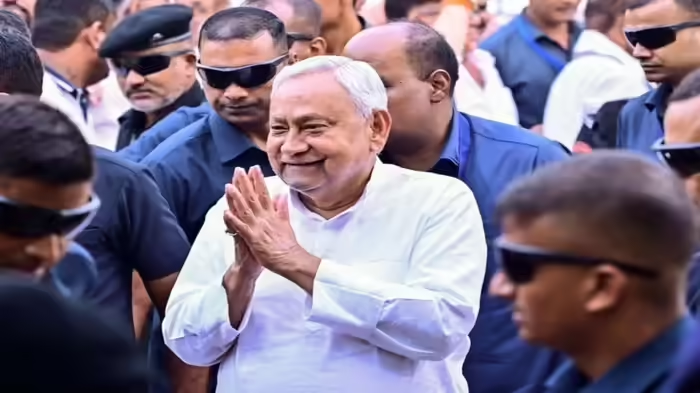
Ranchi, Jharkhand: Bihar Chief Minister Nitish Kumar, a stalwart in state politics for nearly two decades and a nationally respected leader, has struggled to establish a strong Janata Dal United (JDU) base in neighboring Jharkhand. Despite efforts, the party has failed to make significant inroads in the state.
Attempts to Navigate Ethnic Equations
Ahead of the Jharkhand Assembly elections in November 2024, a crucial meeting was held at Nitish Kumar’s official residence in July 2024, attended by Jharkhand JDU leaders and Bihar ministers. The focus was on understanding the state’s complex ethnic dynamics, particularly the aspirations of the Kurmi/Kudmi community, which has long sought recognition as a Scheduled Tribe (ST) in Jharkhand.
In an effort to appeal to Kurmi voters, Nitish Kumar had earlier nominated Khiru Mahto, a prominent Kurmi leader from Jharkhand, to the Rajya Sabha in 2022. Mahto was also made the JDU whip in the Upper House. However, seat-sharing agreements with allies limited JDU’s electoral prospects. In the 2024 elections, JDU contested only 2 seats, winning just one, while the BJP dominated with 68 seats.
Electoral History in Jharkhand
Since Jharkhand’s formation, JDU’s performance has been uneven. In 2005, JDU won 6 out of 18 allocated seats in alliance with BJP. In 2009, the party managed only 2 out of 14 seats. The 2014 and 2019 elections saw further setbacks, with JDU failing to make a significant mark, either contesting alone or in alliance.
The Kurmi/Kudmi Identity Challenge
A key challenge is the distinction between Kurmis in Bihar and Kudmis in Jharkhand. While culturally and occupationally similar—both primarily engaged in agriculture—the Jharkhand Kudmis speak Kurmali, while Bihar Kurmis speak Hindi or regional dialects. Historically, Kudmis were classified as Scheduled Tribes in the 1931 census but later moved to the Other Backward Classes (OBC) category, fueling demands for ST status.
Fragmented Leadership Hinders Consolidation
Unlike Bihar, where Nitish Kumar enjoys consolidated Kurmi support, Jharkhand’s Kudmi vote is fragmented across multiple leaders such as Vinod Bihari Mahto, Sudesh Mahto, and Jayram Mahto. This dispersion, along with the presence of already active Kurmi leaders across parties, has made it difficult for Nitish Kumar to build a unified JDU base in the state.
Conclusion
Until Nitish Kumar establishes himself as a recognized Kurmi leader in Jharkhand, JDU’s expansion in the state will remain limited. Political analysts note that consolidating Kudmi votes is critical for any party seeking influence in Jharkhand’s competitive electoral landscape, where Kudmis account for around 20% of the population and are decisive in about 20 assembly constituencies.
Discover more from SD NEWS agency
Subscribe to get the latest posts sent to your email.